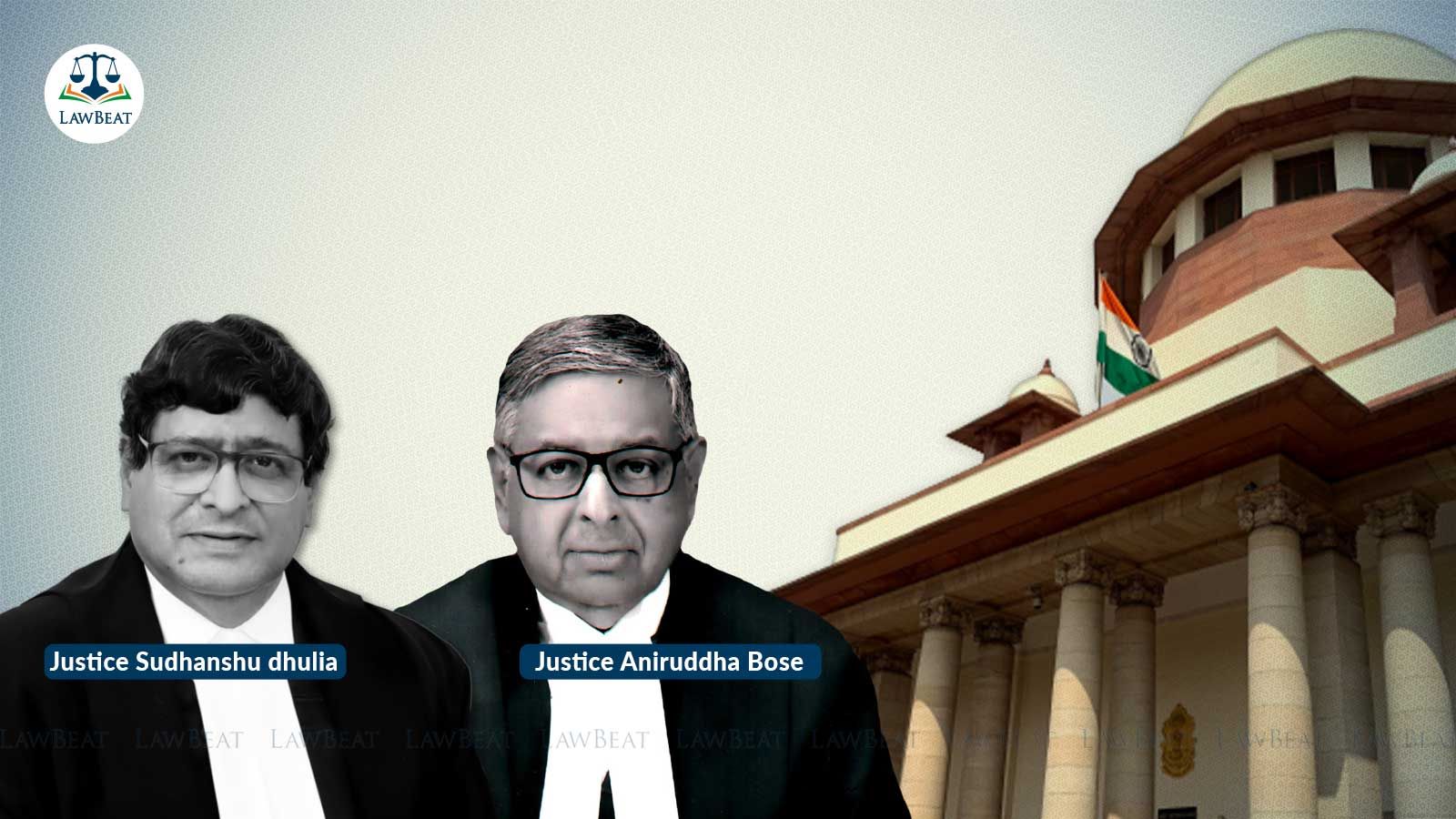Supreme Court issues notice on Plea challenging final result of Jharkhand Superior Judicial Services-2022

In exercise of regulation making power under rule 30 of The Extant Rules of 2001, The High Court of Jharkhand framed the Jharkhand Superior Judicial Service (Recruitment, Appointment & Conditions of Service) Regulations, 2017 which are allegedly inconsistent and in contradiction to the purpose and objective of the 2001 rules, the plea alleged.
In a significant hearing before the Supreme Court, the bench of Justices Aniruddha Bose and Sudhanshu Dhulia issued notice on 28.04.2023 to the High Court of Jharkhand and the State of Jharkhand on a petition for quashing and setting aside the final result of the Jharkhand Superior Judicial Services, 2022.
The final results were challenged for being flagrantly violative of Jharkhand Superior Judicial Services Rules 2001. The petitioners further sought to republish the final result of the Jharkhand Superior Judicial Services, 2022 in accordance with the mandate of Rule 21 of ‘The Extant Rules 2001’.
The petitioners, represented by Senior Advocate Sanjay Hegde, also moved an application for stay and restraining the Jharkhand High Court and State of Jharkhand from recommending and issuing joining letters for the appointment of the selected 13 candidates for the post of the District Judge till the final disposal of the petition. The Supreme Court issued the notice on the same to the Jharkhand High Court and the State of Jharkhand.
The petitioners appeared for the Jharkhand Higher Judicial Service Exam, 2022 and were aggrieved because of a regulation of 2017 that required 20 marks out of 40 marks i.e. 50% of marks to be secured in interview. The rule however required only 30% marks to be qualified in an interview. The petitioners contend that the regulation of 2017 could not go beyond the rule of 2001.
Out of 22 posts, only 13 were filled and 9 posts remain unfilled, which could have been filled, but for the regulation, the petitioners argued.
The petitioners contend that it is a settled principle of law that 'rule' and 'regulation' are utilized to distinguish the source and to subordinate the latter to the former. The regulations must not be inconsistent with the rules as in case of a conflict between the enabling rules and regulation, the rule shall prevail, and further that the regulation must be read in the context of the rules and not vice versa.
The petitioners submitted that Rule 21 of The Extant Rules of 2001 provides for a minimum of 30% marks for qualifying in the viva voce test, whereas in a due process totally unknown to law and in total contradiction to the purpose and objectives of the said rules; the intent of the rule had been arbitrarily modified after sixteen years vide a regulation by incorporating an inconsistent clause 12 in the regulations of 2017 which now provided for a minimum of 50% marks for qualifying in the viva voce test i.e. to obtain a minimum of 20 marks out of the aggregate of 40 marks in the viva voce test.
They further said that the high court being the regulating authority had abdicated its constitutional duty to see that the high traditions and standards of the judiciary were maintained by the selection of proper persons to man the subordinate judiciary.
"It is settled law that delegated legislation cannot be made in a colorable manner to indirectly usurp and frustrate the mandate of the parent law, deriving authority where the delegated legislation is made. It is further a settled proposition of law in case a delegated legislation comes in direct conflict with the parent law, it is the latter which prevails in its true letter, purport, and spirit. Furthermore, the delegated legislation cannot in any manner flout, contravene, or go behind the tacit mandate of the parent law (i.e The Extant Rules of 2001 in the present case)", the petitioners' counsel contended.
The petitioners were five practicing Advocates by profession in various respective High Courts/District Courts across India and were meritorious aspirants of the Higher Judicial Services (H.J.S) examinations which are periodically conducted under the aegis of different high courts in India for their respective states.
The final results of the Jharkhand Higher Judicial Service exam, 2022 were declared in the month of March 2023 without even disclosing the marks obtained by the candidates who participated in the recruitment process till the viva-voice. The petitioners contend that the said result had been prepared by the High Court of Jharkhand as per clause 12 of the Regulations of 2017 which in turn is violative, dehors and inconsistent with Rule 21 of The Extant Rules, 2001.
Furthermore, the advertisement bearing no. 01/2022/Apptt. as published by the High Court of Jharkhand originally contained four pages as available on the official website of the High Court of Jharkhand. It was the contention of the petitioners that after the pronouncement of results, the fourth page containing the impugned regulation no. 12 of the regulation of 2017 of the original advertisement had been deleted. Out of the five petitioners, one sent a representation to the High Court of Jharkhand on 29.03.2023 against the publication of the final result in March 2023 for the same being inconsistent with the rule of 2001, but the same was to no avail.
Case Title: SUSHIL KUMAR PANDEY & ORS. VERSUS THE HIGH COURT OF JHARKHAND & ANR.
